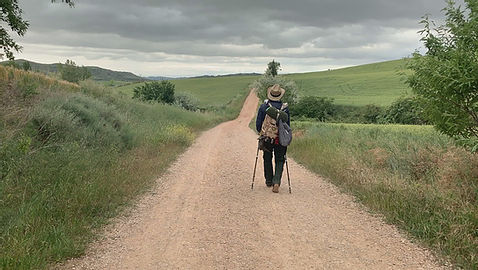


Doker Jessica Nettelbladt: Prince of Dreams

Let me give you a brief content quote from the Doker website:
”Erik was born as a girl but always felt like a boy. As an 18-year-old, he began the process of gender reassignment. This is where ‘Prince of Dreams’ starts too. Shot over a full 10 years and with no filter. Isolation, bullying and anxiety have followed Erik throughout his life, while he has struggled with recognition from his surroundings and himself…”
”With no filter” – the film is very close to Erik and his family, especially the mother who on one hand suffers because of the son’s decision, on the other supports, also when Erik finds his Martyna even if the two, the mother and Martyna, have some tough arguments. The Polish grandma is in the background always ready to give a hug and an advice of common sense. The camera is there catching the many embarrasing moments the film is full of.
The film’s frame is Erik on his pilgrimage, the camino – oh these Galician landscapes full of beauty that calms him down, giving him the needed spirituality at the moment in his life he has reached, where ”my trans identity brings me down”. At that point in the narrative Erik has revealed that he was sexually abused when he was 13.
Which leads me to some storytelling comments: How clever of the film team to hold back this information to the second part of the film, letting the focus be on Erik, who ”always felt like a boy”. It takes the film away from any kind of dramatic sensationalism letting Erik himself express his feelings verbally and through his strong expressionistic ceramic pottery.
And it can not be stressed enough how strong a film like this becomes, when you have been able to follow the protagonist through archive for many years. Time is precious and important, in this case for a film on a young man searching for a meaning with life. ”God will come to me”, it feels so natural that he has a job as a cleaner in the church…